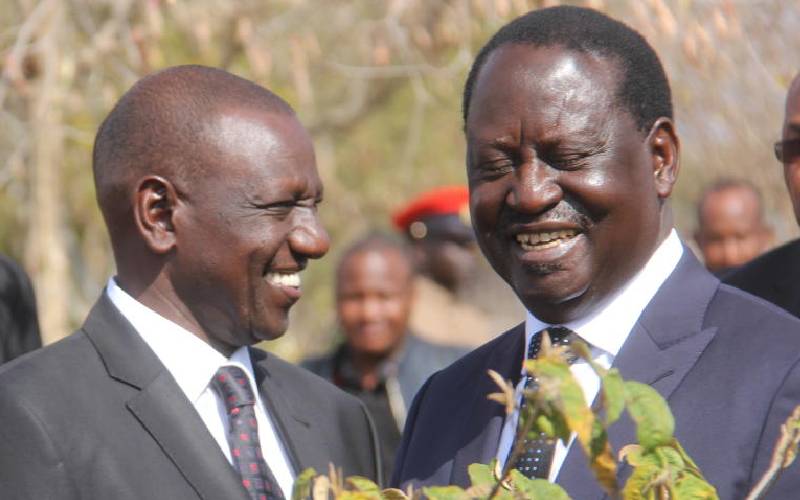×
The Standard e-Paper
Kenya’s Boldest Voice

DP William Ruto and ODM leader Raila Odinga. [Courtesy]
If you examine Raila Odinga and William Ruto, you will notice that their actions, body language and speeches point to a people already too confident about the outcome of the 2022 presidential election. They behave as if they have already won the election.